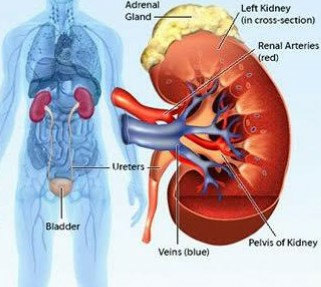A drug that currently treats rheumatoid arthritis has been identified to cure diabetics kidney disease (neupropathy).
Currently diabetes kidney disease is one of those diseases that have no direct treatment and which is the most common long term complications of diabetes.
If diagnosed of neupropathy,a combination of lifestyle change,and when necessary, blood pressure medication are used to limit the possible damage that could be done to the kidneys.
Researchers from the Boston children's hospital of Havard medical school knew that previous research studies had shown a gene linked with the expression of the B7-1 receptor is associated with greater risk or diabetic nephropathy and progression to end stage renal disease (ESRD),the final stage of the disease.
The researchers tested the use of a B7-1 inhibitor,the drug "abatacept",in rodents engineered to have diabetic nephropathy.
The drug prevented an increase in proteinuria and improved kidney health.
Abatacept is used to treat rheumatoid arthritis and is also undergoing clinical trials to test whether it can hold back the progression of type 1 diabetes.
The studies used to investigate the B7-1 receptor as a potential target were based upon people with type 2 diabetes and the use of abacepta as treatment could extend to both types of diabetes.
Dr Paolo Fiorina of Boston children's hospital is keen to next test abacept in people with diabetes and neupropathy is effective at showing or reversing kidney disease in humans.









0 Comments
Add comment